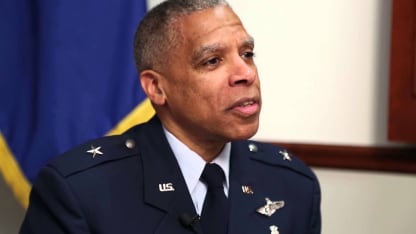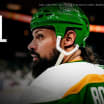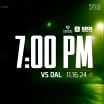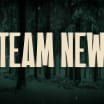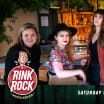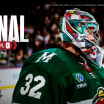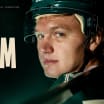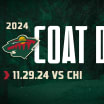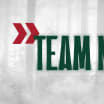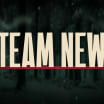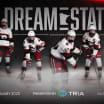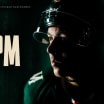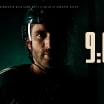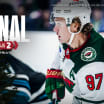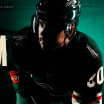"The goal isn't to be the first ... but to try to achieve the goals you set for yourself," he said. "One of the goals I set for myself in the military was to be the best I could be. Somebody's gotta be the first. I don't take any pride in that; it just comes. If I can build a pathway for someone else, that'll be more important than being the first."
Hamlar's quest for excellence makes him a busy man. In addition to his duties as a craniofacial surgeon at Regions Hospital, the co-director of the University of Minnesota's Craniofacial Skull Base Center, and as a team surgeon for the Minnesota Wild, Hamlar is responsible for about 2,500 servicemen and women in the 148th Fighter Wing in Duluth and the 133rd Airlift Wing in St. Paul.
As a surgeon, he removes tumors, repairs cleft lip and cleft palate and reconstructs skulls. As a member of the Air National Guard, he's served in support of Operation Desert Shield and Desert Storm. He was deployed to Iraq and Afghanistan three times each in support of Operation Enduring Freedom and Iraqi Freedom. His civilian and military careers shape each other.
"It serves both ends," Hamlar said. "In other words, from a military standpoint, I've learned leadership, I'm able to work with people and work as a team. Plus the type of surgery that I did while in theater, helping our guys and gals with surgery over there helped me be a better surgeon here. Surgery in civilian life has helped me save lives of our men and women in combat."
Though Hamlar has been to hundreds of Wild games, Tuesday's contest against Buffalo will have special significance. He'll get the unique opportunity to open the Military Appreciation Night contest with the "Let's Play Hockey!" call with his family by his side.
"Just think of the people who've done that," Hamlar said. "It's an honor."
Hamlar has been with the Wild since 2003, and he's developed strong bonds and ties to the other doctors he works with and to the team itself. While he was a flight doctor in the Air National Guard, he was responsible for taking care of the men and women who flew the aircraft and the team surrounding them.
That's how he sees his relationship to the Wild.
"We're there to take care of them and their families," Hamlar said. "That's what flight docs do. They take care of the flier and the family. So we hope that we show that responsibility to the team, that we're there for them, and no matter what it is, that we'll find a way to take care of them."
